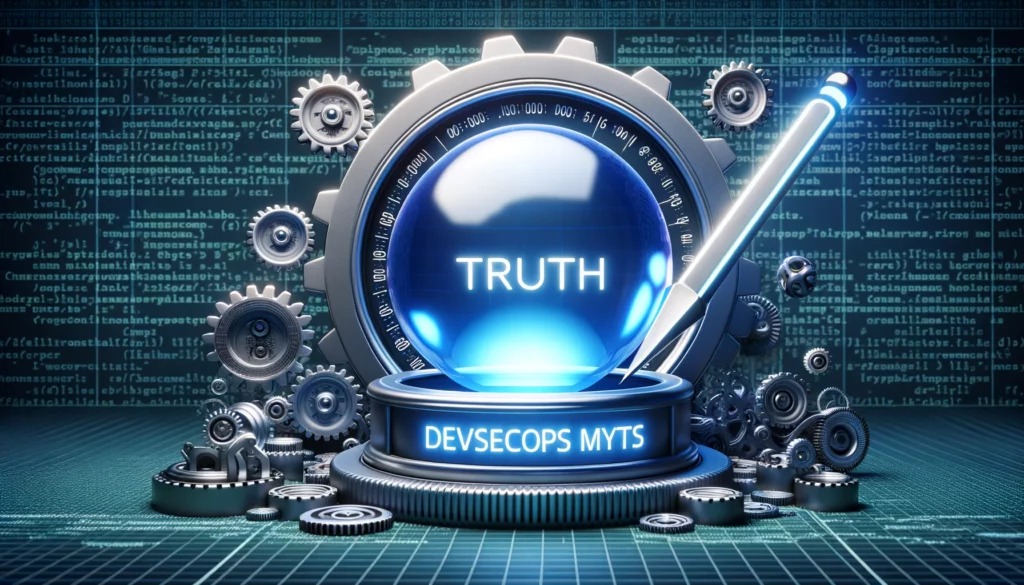Debunking DevSecOps Myths

DevSecOps, the fusion of development, security, and operations, is revolutionizing the way organizations craft and deliver software. This transformative approach champions collaboration, automation, and heightened security consciousness in software development. However, as with any emerging field, a web of myths and misconceptions has entangled DevSecOps.
Myth 1. DevSecOps is Exclusively for Large Enterprises
A prevalent misperception is that DevSecOps caters solely to large enterprises with abundant resources. In reality, DevSecOps principles are adaptable and scalable, rendering them equally applicable to small and mid-sized businesses. The key lies in tailoring DevSecOps to align with the unique needs and size of your organization.
Myth 2. DevSecOps Slows Down Development Speed
Some believe that integrating security into the development process inherently hinders its pace. While there might be an initial adjustment period, the long-term advantages far outweigh any transient delays. DevSecOps optimizes security practices, leading to expedited identification and resolution of vulnerabilities, ultimately accelerating development cycles.
Myth 3. DevSecOps Revolves Solely Around Tools
DevSecOps is occasionally misconstrued as a mere assortment of tools and technologies. While tools are integral, DevSecOps primarily concerns cultural and process transformations. It places an emphasis on fostering collaboration, communication, and a shared responsibility between development and security teams, making security a collective concern.
Myth 4. DevSecOps Renders Security Experts Redundant
DevSecOps does not render security professionals obsolete; it redefines their role. Security experts play a pivotal part in the DevSecOps process, contributing their expertise to automate security practices and seamlessly integrate them into the development pipeline. They act as enablers rather than gatekeepers.
Myth 5. DevSecOps Ensures 100% Security
No approach can guarantee absolute security. DevSecOps endeavors to minimize risks and vulnerabilities, yet it cannot entirely eradicate them. It revolves around continuous improvement and unwavering vigilance in the face of ever-evolving threats. Routine security assessments and vigilant monitoring remain indispensable.
Myth 6. Developers Need Not Worry About Security
In a DevSecOps environment, developers are encouraged to actively engage with security. While they may not be security experts, they should possess an awareness of security best practices, code securely, and actively participate in identifying and resolving vulnerabilities. Security becomes a collective responsibility.
Myth 7. DevSecOps Imposes a Significant Financial Burden
Implementing DevSecOps need not be prohibitively expensive. Open-source tools and practices are readily available and can be adopted without incurring substantial financial costs. The long-term savings stemming from early vulnerability detection and reduced security incidents often outweigh the initial investment.
Myth 8. DevSecOps is a One-Time Implementation
DevSecOps represents an ongoing process, not a one-time endeavor. It necessitates continuous monitoring, evaluation, and improvement. Organizations that perceive it as a singular project are likely to miss out on its substantial and enduring benefits.
DevSecOps is neither a universal panacea nor a mystical enigma. It stands as a pragmatic approach to software development, championing collaboration, automation, and shared responsibility. Dispelling these myths is pivotal to comprehending and embracing DevSecOps fully. By recognizing its adaptability, its emphasis on cultural shifts and procedural adjustments, and its demand for ongoing commitment, organizations can unlock the genuine potential of DevSecOps, forging a more secure and efficient software development pipeline.










